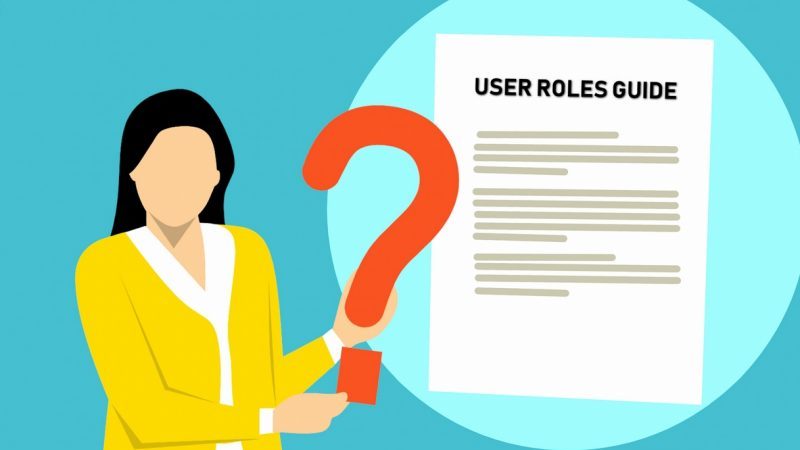Imagine that every visitor to your WordPress website can break down its database. Sounds awful, doesn’t it? Furthermore, such behavior is a severe security issue. If somebody makes any changes to your site, he needs to know what he is doing. Thus, he must have a suitable permission for that action. Otherwise, the consequences could be dramatic. Let’s find out how to avoid such type of problems.
User roles and permissions were designed to protect the website from unauthorized interventions. Your development and support teams would appreciate such an approach. WordPress has some pre-built classical roles.
Subscriber
Subscribers are able to register for your WordPress website, log into it, and change some personal information. They can only read and comment on the content of the website. Subscribers don’t have any other permissions. It is the default role for every user. The subscriber is the most powerless, but the most common role.
Contributor
Contributors can write their posts, but can’t publish them. This role needs to choose only an existing category for the post. Despite this, they can add tags to their posts.
Сontributors can edit or delete their unpublished posts, but they are not allowed to perform such actions on the published content. Contributors don’t have any access to media by default, so they can’t upload files to the article. They don’t have a permission to change the settings of the website, including plugins and themes. They can watch the comments on their posts but can’t moderate them.
Author
Author role is more extended than the contributor’s one. These users have full access to their own posts and can publish them. They are able to edit or delete both published and unpublished posts. Unlike contributors, authors are allowed to upload media files and moderate the comments.
Editor
The editor has full access to all content of the website. He can publish, edit, delete and moderate any posts or comments written by any user. This role is also allowed to manage categories. But, they still do not have access to the settings.
Administrator
The administrator takes all the power within the single website. This role has all permissions of the first four roles. Moreover, he can install or delete themes and plugins, add new users, modify users’ settings and even their personal data. The administrator is allowed to delete users and other administrators. Administrators can modify each role and add the new ones in the dashboard at any time.
Super Admin
Super Admin role is the ultimate decision for multiple websites in a single WordPress installation. He can do pretty much what the administrator can do with his site. The difference is that super admin controls every site in the group. This role can also edit or delete the sites themselves and add the new ones.
The division based on roles is a lot safer than the situation when everybody can do anything.
Plugins for Managing User Roles
Sometimes, standard WordPress functionality can’t meet all your needs. There are dozens of great plugins to help you control roles in the easiest and the most convenient way.
User Role plugin is a great decision for managing the roles of your WordPress website. The plugin can add new user roles and edit existing ones. It is the standard functionality for every tool of such type. Yet, “User Role” represents some extra functionality. It enables you to change role names, view information about each of them and manage its capabilities. It can use one role’s permissions as a template and copy them to other roles.
Upgrade User Role to Premium and get access to unlimited custom user roles. It also provides the ability to configure all subsites on the network. Premium users would get the answer to any support questions in one business day.
The plugin is fully compatible with the latest WordPress version. It is about an easy and fast setup. The settings are pretty simple. If you have any questions about its functionality and settings, you can explore step-by-step videos and documentation.
User roles and user rights are an important part of every website. Careful and optimal management can guarantee development convenience and website security. What is more, such an approach will help to optimize the site team load. On the contrary, any permit violations or incorrect user roles allocations may lead to dangerous malfunctions. Use roles managing plugins to organize correct and stable work of your WordPress website.



